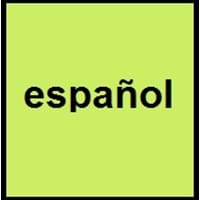Countries
European Union, Poland
Andora, Argentina, Aruba, Australia, Belize, Bolivia, Brazil, Canada, Chile, Colombia, Costa Rica, Cuba, Dominican Republic, Ecuador, El Salvador, Equatorial Guinea, France, Gibraltar, Guatemala, Honduras, Jamaica, Latvia, Luxembourg, Mexico, Morocco, Namibia, Netherlands Antilles, New Zealand, Nicaragua, Norway, Panama, Paraguay, Peru, Philippines, Puerto Rico, Russia, Spain, Sweden, Switzerland, Trinidad and Tobago, Turkey, United Kingdom, United States of America, Uruguay, Venezuela, Western Sahara
National Language
Poland
Spain
Second Language
Belarus, Czech Republic, England, Lithuania, Slovakia, Ukraine
Andora, Aruba, Australia, Austria, Belgium, Belize, Brazil, Bulgaria, Canada, Denmark, France, Germany, Ireland, Israel, Italy, Jamaica, Luxembourg, Morocco, Netherlands, Netherlands Antilles, New Zealand, Philippines, Poland, Portugal, Romania, Russia, Slovenia, Switzerland, Trinidad and Tobago, Turkey, United Kingdom, United States of America, US Virgin Islands
Speaking Continents
Europe
Africa, Asia, Europe, North America, South America
Minority Language
Belarus, Czech Republic, Hungary, Slovakia, Ukraine
Brazil, France, Germany, Italy, Japan, Morocco, United Kingdom
Regulated By
Polish Language Council (Rada Języka Polskiego)
Asociación de Academias de la Lengua Española
Interesting Facts
- Polish Language has many loanwords from Russian, Czech, French, Italian, Hebrew and German Languages.
- The earliest writings found in polish language was list of persons and place names, is dated to 1136.
- One of the world's most phonetic language is Spanish.
- Up to the 18th century, Spanish was diplomatic language.
Similar To
Czech, Slovak, Serbian Languages
French Language
Derived From
Not Available
Latin
Alphabets in
Polish-Alphabets.jpg#200
Spanish-Alphabets.jpg#200
Writing Direction
Left-To-Right, Horizontal
Left-To-Right, Horizontal
Thank You
dziękuję
Gracias
How Are You?
Jak się masz?
Cómo estás?
Good Night
dobranoc
Buenas Noches
Good Evening
dobry wieczór
Bonne soirée
Good Afternoon
dzień dobry
Buenas Tardes
Good Morning
Dzień dobry
Buenos Días
I Love You
kocham Cię
Te Quiero
Excuse Me
przepraszam
Discúlpeme
Dialect 1
Kashubian
Mexican Spanish
Where They Speak
Poland
Mexico
Dialect 2
Masovian
Cuban Spanish
Where They Speak
Poland
Cuba
How Many People Speak
Not Available
Dialect 3
Silesian
Puerto Rican Spanish
Where They Speak
Czech Republic, Poland
Puerto Rico
Second Language Speakers
Not Available
Native Name
Polski
Español
Alternative Names
Polnisch, Polski
Castellano, Castilian, Español
French Name
polonais
espagnol; castillan
German Name
Polnisch
Spanisch
Pronunciation
[ˈpɔlski]
[espaˈɲol], [kasteˈʎano]
Ethnicity
Poles
Not Available
Language Family
Indo-European Family
Indo-European Family
Branch
Western
Not Available
Early Forms
Old Polish and Middle Polish
Old Spanish and Spanish
Standard Forms
Polish
Pluricentric Standard Spanish
Signed Forms
System Językowo-Migowy (SJM) (Signed Polish)
Signed Spanish
Scope
Individual
Individual
ISO 639 6
pols
Not Available
Glottocode
poli1260
stan1288
Linguasphere
53-AAA-cc
51-AAA-b
Language Type
Living
Living
Language Linguistic Typology
Subject-Verb-Object
Subject-Object-Verb
Language Morphological Typology
Fusional, Synthetic
Fusional, Synthetic
Polish and Spanish Greetings
People around the world use different languages to interact with each other. Even if we cannot communicate fluently in any language, it will always be beneficial to know about some of the common greetings or phrases from that language. This is where Polish and Spanish greetings helps you to understand basic phrases in Polish and Spanish language. Polish word for "Hello" is cześć or Spanish word for "Thank You" is Gracias. Find more of such common Polish Greetings and Spanish Greetings. These greetings will help you to be more confident when conversing with natives that speak these languages.
Polish vs Spanish Difficulty
The Polish vs Spanish difficulty level basically depends on the number of Polish Alphabets and Spanish Alphabets. Also the number of vowels and consonants in the language plays an important role in deciding the difficulty level of that language. The important points to be considered when we compare Polish and Spanish are the origin, speaking countries, language family, different greetings, speaking population of these languages. Want to know in Polish and Spanish, which language is harder to learn? Time required to learn Polish is 44 weeks while to learn Spanish time required is 24 weeks.





